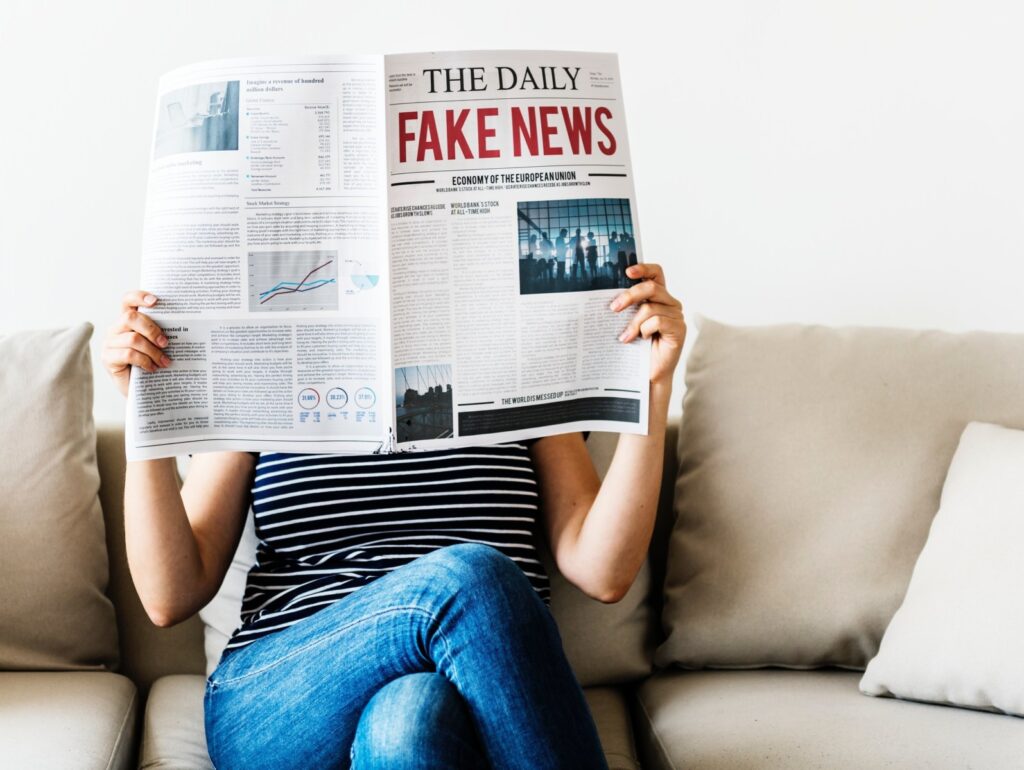Sun Tzu, writing some 2,500 years ago in The Art of War, noted the power of misinformation. All warfare, the military strategist considered, is deception.
This innate mode of warfare has not changed – David Patrikarakos’ “War in 140 Characters” explores the modern variants of it well – but the world has. With the advent of 21st century social media, misinformation and disinformation is not limited to how far a horseman can spread #fakenews (however broad and poorly defined the term is).
Does philosophy have any answers for us to deal with this phenomenon? Perhaps.
Testimony is a key way we collate knowledge
One of our key sources of knowledge is testimony. Quite simply knowledge we gain from others. Aside from using our senses, it’s how we come to believe and know most of the things we do.
Examples range from the written like the Old and New Testaments, the aural like a product review on a podcast, or the audio-visual like client testimonial videos on a communications agency website.
To give you an idea of the ubiquity of testimony-based knowledge, think of things like the Earth being round, diamond being a carbon structure, or that salt decreases the temperature at which water boils.
And think about how you came to possess these beliefs. It is most likely because someone else informed you.
Through credulism, fake news is able to take hold
Testimony is open to misuse because of its ubiquity, and because our reliance on it is predicated on an underlying belief that humans tend to tell the truth.[1] Thus it is the fuel to the conspiracy theorist’s fire; we only know the moon landing happened through testimony. What if NASA is indeed lying? How can you be sure they are not?
The concept of believing in testimony unless you have a specific reason not to is called ‘credulism’ by epistemologists. It’s fair to say that most of us approach knowledge in a credulist way. Unless we have a reason to distrust the individual or situation, we typically trust and believe the knowledge without questioning it further.[2]
In a world of #fakenews, the question is whether credulism is fit for purpose.
Reductionism offers a more thorough approach to knowledge at the cost of practicality
Of course there is an alternative, illustrated by John Locke:
Aristotle was certainly a knowing Man, but no body ever thought him so because he blindly embraced, and confidently vented the Opinions of another.
Locke is arguing that Aristotle, and by inference the rest of us, do not accumulate knowledge by blindly listening to others. Instead, we should seek further (non-testimonial) support for whatever we’ve learnt from them. We must seek confirmation of what they say.
This approach – reductionism – is undoubtedly a more thorough way of assessing knowledge. At the same time it is ludicrously impractical. How would we assess whether the Earth is round without spending millions of dollars to see it for ourselves? If we discount what we learn from others as knowledge, we set our communal development back centuries.
There is something to be said for taking a more clinical approach to knowledge, especially that which is found on the Internet. Rather than just retweeting a piece because we like the headline, maybe we should take the time to read the article and assess its veracity before distributing it to our respective networks.
This doesn’t necessarily mean seeking out non-testimonial support for the article. But we could take the journalistic method and look for two independent, testimonial sources in support (or even just one).[3] Evidently those sources must be credible; the vast majority of bloggers and social media influencers do not count.
We should consider an elementary framework: who, when, why
In school history lessons we were taught the importance of assessing bias in your sources. For each we had to explore who wrote the content in question, when they wrote it (i.e. was it at the time, or were they themselves relying on testimony), and why they wrote it.
If we paused from our hectic, attention-deficit driven lives, and took the time to submit everything we read through this most basic of frameworks, maybe we would have a shot at defeating #fakenews.
Because just as in the era of Sun Tzu, conflict-driven deceptions are designed to exploit the audience. And it is up to the audience to arm themselves in defence.
[1] The philosopher Thomas Reid describes it as “a disposition to confide in the veracity of others”.
[2] There is a great body of work in the philosophical and indeed the communications space, that explores what the key factors in trust or trustworthiness are or indeed whether it’s all just hype. Brennan Jacoby, Robert Phillips, and the Edelman Trust Barometer are good places to start.
[3] To be fair, even journalists appear to be struggling with this.



